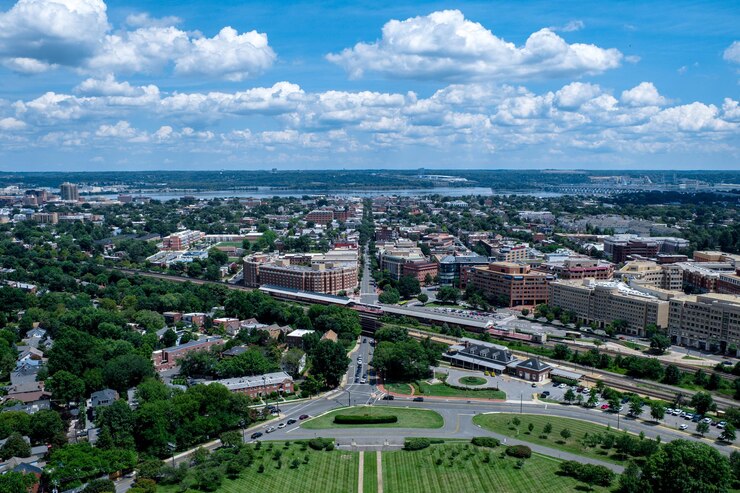Commercial collections in Boston Metro area are struggling with overdue B2B accounts receivable and need specialized commercial collection expertise. When biotechnology innovation and financial services leadership drive regional excellence, protecting customer relationships while recovering debt becomes critical to cash flow and business sustainability. Commercial collections in Boston Metro demand specialized strategies to address these dual-industry challenges.
Regulatory Landscape in the Boston Metro
The Boston metropolitan area operates under Massachusetts’ comprehensive commercial collection regulations, requiring agencies to secure a $50,000 surety bond and obtain licensing through the Division of Banks. The state’s regulatory framework emphasizes biotechnology and financial services compliance while maintaining appropriate consumer protections, extending certain safeguards to small business accounts when personal guarantees accompany research and financial services contracts.
Massachusetts’s six-year statute of limitations for open-account debt provides extended collection opportunities, with state law permitting 12% annual interest rates on commercial obligations unless written contracts specify alternative terms with proper legal documentation. Massachusetts’s Uniform Commercial Code governs secured transactions, requiring UCC-1 filings through the Secretary of State’s office to perfect security interests in research equipment, financial services assets, and intellectual property.
Commercial collections in Boston Metro benefit from this favorable legal environment, especially when collection agencies tailor efforts to the biotechnology and finance sectors.
Commercial collection activities operate within Massachusetts’s sophisticated court system, with Suffolk County and Middlesex County courts offering expedited procedures for biotechnology and financial services disputes while maintaining comprehensive discovery processes for complex research and institutional cases. Specialized business calendars accommodate the region’s biotechnology research cycles and financial services regulatory requirements.
Attorney involvement becomes mandatory for legal actions exceeding $30,000, ensuring adequate representation for substantial commercial disputes while allowing collection agencies flexibility for research provider accounts and financial services transactions. The state’s garnishment laws provide reasonable creditor remedies while maintaining appropriate debtor protections.
The Boston metropolitan area’s concentration of world-class research institutions and financial services companies creates opportunities for sophisticated intellectual property and asset recovery, while Massachusetts’s innovation-supportive legal environment facilitates efficient collection procedures. Commercial collections in Boston Metro require deep familiarity with the funding and compliance dynamics common across Kendall Square and the Route 128 corridor.
Collection agencies must understand complex research funding cycles and financial services regulatory compliance requirements.
Tech Stack & Workflow Optimization
Boston metropolitan area commercial collection operations utilize cutting-edge technology platforms integrating with biotechnology-focused ERP systems including SAP Life Sciences, Oracle Clinical, Veeva Systems, and financial services platforms like FIS, Fiserv, and Bloomberg Terminal, reflecting the region’s concentration of biotech companies and financial institutions throughout Cambridge, Boston, and the Route 128 technology corridor.
Commercial collections in Boston Metro increasingly depend on these advanced platforms to ensure compliance and secure recoveries.
Advanced automation platforms, including HighRadius, Tesorio, and biotechnology-specific collections software, optimize workflows while maintaining the precision essential for the metropolitan area’s research and financial services environment. Predictive dialer systems accommodate biotechnology research schedules and financial services operational hours, adjusting communication timing for laboratory operations and institutional business cycles.
Skip-trace capabilities access comprehensive biotechnology and financial databases while respecting intellectual property regulations governing research and financial information access. CaseMaster Pro legal integration streamlines attorney referrals for biotechnology and financial services disputes, automatically generating Massachusetts-specific legal documents, including intellectual property liens and judgment enforcement paperwork.
Commercial collections in Boston Metro often involve high-stakes recoveries, where legal automation and secure data handling are paramount.
Dispute resolution portals provide enterprise-grade security meeting biotechnology and financial services industry standards, with encryption protocols satisfying FDA, NIH, and financial regulatory requirements for companies handling sensitive research data and financial information. Integration capabilities extend to specialized research funding systems and major financial platforms common among the metropolitan area’s institutions.
Real-time reporting delivers industry-specific dashboards relevant to biotechnology, financial services, education, and technology sectors, providing customized metrics reflecting research grant cycles and financial reporting schedules. Security compliance ensures data security standards protect sensitive biotechnology intellectual property and financial data while supporting audit requirements for publicly traded companies.
Workflow automation accommodates Boston’s biotechnology research and financial services cycles, with enhanced capabilities during grant funding periods and quarterly financial reporting when companies typically settle outstanding research vendor accounts and establish new development partnerships.
Commercial collections in Boston Metro are most effective when aligned with these predictable institutional timelines.
Proof of Performance for Commercial Collections in Boston Metro
Boston metropolitan area biotechnology and financial services sectors present sophisticated collection challenges with payment cycles averaging 89 days due to complex research grant approval processes and institutional compliance verification requirements that affect vendor payment timing. Biotechnology companies typically maintain detailed funding arrangements requiring multiple regulatory approvals, while financial institutions face examination compliance delays.
MSBureau’s biotechnology and financial services expertise consistently delivers 43% faster collection resolution compared to metropolitan area industry averages, reducing typical recovery timeframes from 89 days to 51 days through specialized communication strategies aligned with research funding cycles and financial services reporting schedules.
Commercial collections in Boston Metro also benefit from sector-specific engagement styles that reflect the professional tone expected in these highly regulated industries.
Industry-specific protocols accommodate complex regulatory considerations while maintaining professional relationships essential in competitive markets.
Performance analysis across major biotechnology research accounts demonstrates 48% improvement in collection success rates when implementing research-focused workflows versus standard commercial collection approaches. Financial services sector clients show 37% higher payment compliance when collection efforts align with regulatory examination cycles and institutional budget planning typical in Boston’s financial services industry.
Operational efficiency metrics indicate a 45% reduction in collection costs through comprehensive biotechnology and financial services ERP integration and automated workflow management, enabling resources to focus on relationship preservation, essential in the metropolitan area’s interconnected research and financial communities. Client retention rates consistently exceed 93% when utilizing collaborative approaches that respect research cycles and regulatory requirements.
Commercial collections in Boston Metro prioritize professional diplomacy and regulatory adherence to maintain long-term client relationships.
Cost-effectiveness measurements demonstrate a 54% improvement in recovery rates when combining grant funding and financial compliance tracking with metropolitan area-specific account management, reflecting Boston businesses’ preference for systematic approaches that maintain established research partnerships and financial relationships while ensuring professional collection standards throughout complex funding and regulatory processes.
Next Steps for Boston Metro Businesses
Boston metropolitan area companies seeking enhanced accounts receivable performance benefit from comprehensive evaluations examining biotechnology research cycles, financial services requirements, and grant funding patterns common throughout the region. MSBureau’s assessment process addresses industry-specific challenges affecting research institutions, biotechnology companies, and financial services firms serving the Northeast market from Boston.
Commercial collections in Boston Metro begin with an understanding of these overlapping industry rhythms and their impact on payment timing.
Implementation timelines accommodate research and financial services demands, with standard ERP integration typically requiring 10–14 days for common platforms, including Veeva and Bloomberg systems prevalent among the metropolitan area’s biotechnology and financial services providers. Specialized integration requires additional regulatory verification but delivers substantial efficiency improvements.
Compliance setup ensures adherence to Massachusetts collection regulations while establishing procedures for multi-state research and financial services activities common among companies serving national and international markets from Boston facilities. Performance benchmarking establishes realistic targets based on metropolitan area payment behaviors and regulatory cycles affecting the biotechnology and financial services sectors.
Ongoing management includes dedicated account representatives familiar with the commercial collections in Boston Metro culture and industry relationship dynamics essential for success in competitive research and financial services markets. Regular performance reviews assess collection effectiveness while identifying opportunities for process improvements that preserve crucial research partnerships and financial relationships.
Companies interested in improving accounts receivable performance can schedule assessments through MSBureau’s Boston offices, with consultation options accommodating biotechnology and financial services executives’ demanding research and regulatory schedules. Initial evaluations provide actionable insights regardless of implementation decisions, demonstrating potential improvements through comprehensive metropolitan area portfolio analysis.
MSBureau maintains full Massachusetts collection agency licensing and bonding. Our commercial collections in Boston Metro area comply with state regulations while protecting your business relationships. Schedule a consultation to discuss your Boston metropolitan area biotechnology accounts receivable challenges.
Contact Our Commercial Collections in Boston Metro
Ready to secure your receivables with expert commercial collections in Boston Metro? Contact us today to schedule your complimentary assessment.
Phone: (316) 263-1051
Address: 625 W. Maple St., Wichita, KS 67213





